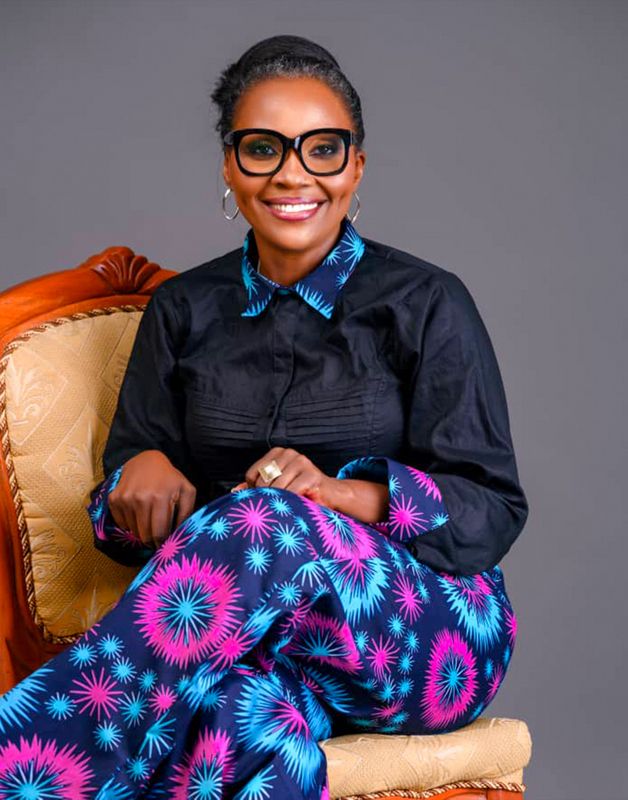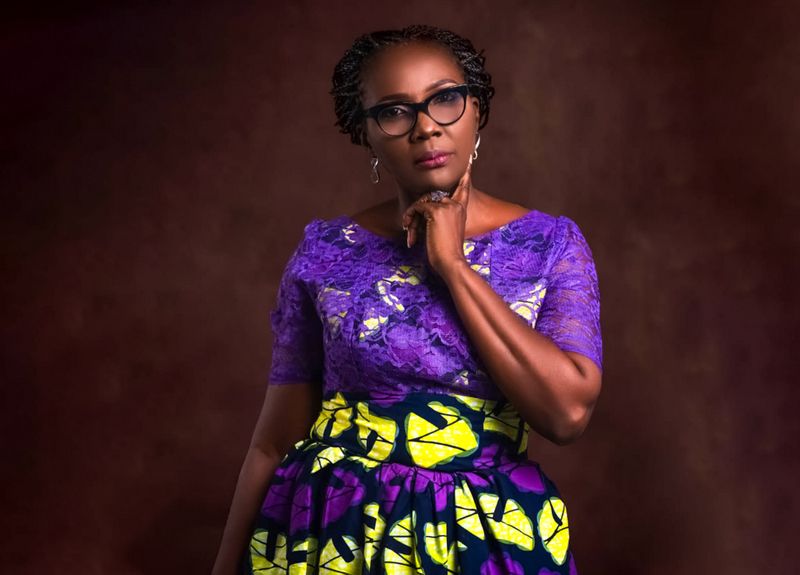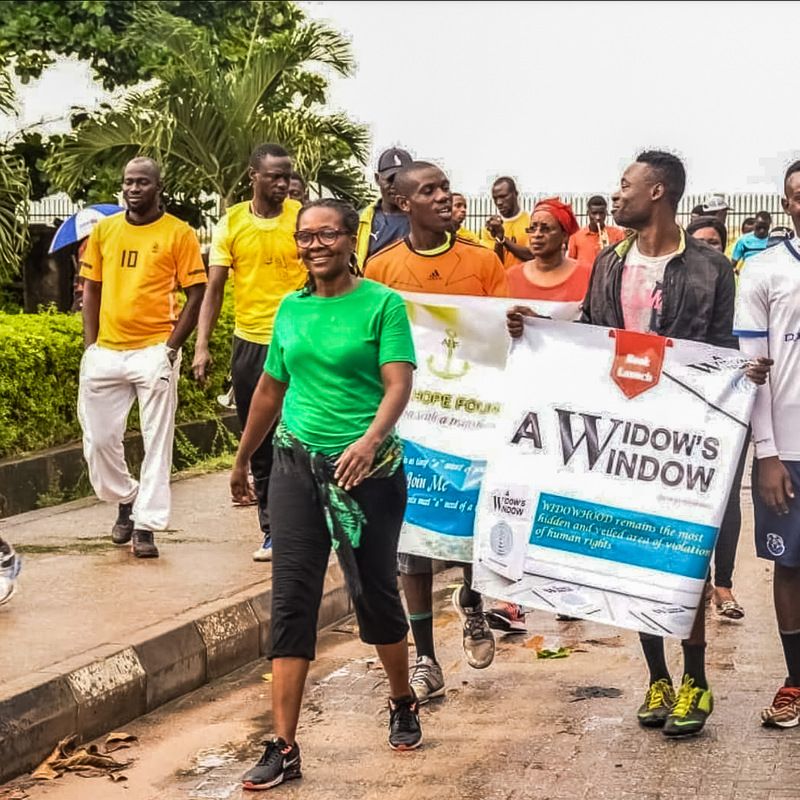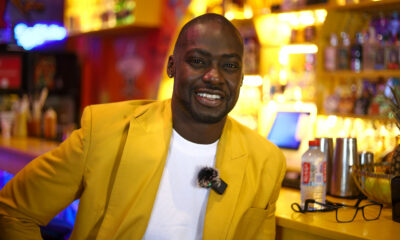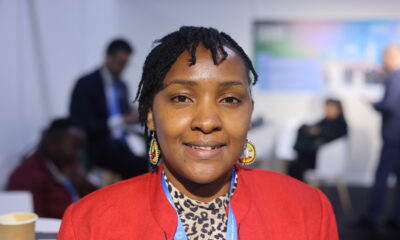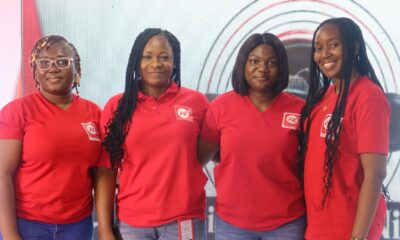Inspired
Radio Host Hope Nwakwesi is on a Mission to Change the Lives of Widows in Nigeria
When Caroline Dick lost her husband to an electric shock accident at his workplace in Lagos in 2011, she couldn’t have known that this was just the beginning of her personal tragedy. The night before her husband’s burial in his home village in Ebonyi state, Southeast Nigeria, she was accused of killing him through witchcraft and expelled from the village.
“I couldn’t understand all that was happening. I had to sleep in a police station that night. I couldn’t attend my husband’s burial. I headed back to Lagos the next day,” Dick said.
Returning to Lagos, the newly widowed woman discovered that without notice, her landlord had evicted her from their apartment. She had no support system in Lagos and was soon penniless, seeking refuge in incomplete and derelict buildings and struggling to make ends meet. To make matters worse, she was pregnant. She gave birth to her baby in the most dire conditions. Out of nowhere, she was offered a lifeline.
“In 2016, I was on the brink of suicide. Then I found the Almanah Hope Foundation Facebook group, where I connected with other widows who had faced similar struggles but refused to give up. Hope Nwakwesi invited me to the radio station where I told my story to create awareness of what widows go through,” she said.
Every Saturday evening, Hope Nwakwesi, host of ‘A Widow’s Window’ radio program, leaves her home and makes her way to WFM 91.7, a gender-sensitive radio station in Lagos. Licensed by the Nigerian Broadcasting Commission to deliver programming for women, the station is considered a trailblazer on the continent.
Nwakwesi conceived of ‘A Widow’s Window’ in 2018 as part of her mission to advocate for the rights of widows and denounce harmful cultural practices imposed upon them in Nigeria and across Africa.
Those include engaging in degrading rituals such as sleeping with the deceased husbands’ corpses, forcibly shaving widows’ heads, imposing seclusion, and mandating black clothing for extended periods. While some widows are coerced into marrying other members of their deceased husband’s family, others are deprived of their rightful inheritance.
Nigeria alone has approximately 15 million widows and living in a patriarchal society like Nigeria, where men dominate the economic and political systems, they have little recourse to justice.
“These harmful practices not only violate the human rights of widowed women but also perpetuate a cycle of gender-based violence and inequality. The weaknesses in the legal framework for protecting widows’ rights exacerbate the situation,” explained Abiola Akiyode-Afolabi, a civil rights activist and founding director of the Women Advocates Research and Documentation Centre.
Nwakwesi has endeavoured to challenge and transform the status quo by using the airwaves to passionately educate people about the importance of respecting widows’ rights. Periodically, she invites widows who have been maltreated to come and tell their stories on air so that society can have a better understanding of what widowed women go through. That was Dick’s experience – and she credits it, along with her involvement with the Almanah Hope Foundation, which was founded by Nwakwesi, with helping turn her life around.
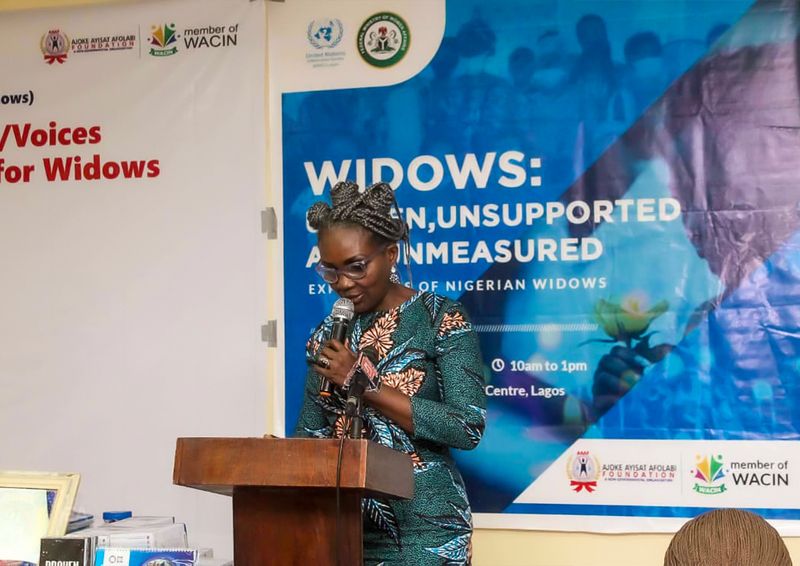
Nigerian radio host Hope Nwakwesi giving her speech at a widow’s summit. Photo Credit: Hope Nwakwesi
Nwakwesi’s determination to advocate for the rights of widows is deeply rooted in personal experience. In 1994, she lost her husband, a police officer. During the burial rites, she was subjected to the distressing cultural practices of having her hair forcibly shaved and being obliged to wear mourning attire for a full year.
To add to her plight, she was expelled from her workplace as well as her home in the police barracks. In a desperate attempt to seek help, she encountered further challenges. Even those who offered assistance, including police officers, demanded inappropriate and exploitative sexual favours in return.
“I was left with nothing, and I had to rebuild my life from scratch. Driven by my own experience, I took the initiative and founded a non-profit organisation called the Almanah Hope Foundation. Our mission is to fervently advocate for the rights of widows in Nigeria, addressing the injustices and challenges they confront,” Nwakwesi said.
The Almanah Hope Foundation has evolved into a sanctuary for hundreds of Nigerian widows striving to overcome the challenging circumstances imposed upon them by society due to their status.
According to Nwakwesi, its main goal is to provide vital resources that empower widows, strengthening them and fostering a sense of security, contentment and empowerment.
Her efforts have yielded positive results, as she helps bring attention to this pressing issue and works towards a more equitable and just society for widows.
“The essence of the program is to advocate against cultural practices that inflict suffering on widows, as no woman should face discrimination simply because she has lost her husband” Nwakwesi shared.
“I have received calls from people who have been persuaded that mistreating widowed women in the name of culture is entirely unjust and a practice they have abandoned after listening to me for some time,” she added.
Sarah Temidayo, a member of the foundation related her experience.
“A month after I lost my husband and was forced out of my home by his relatives, I felt extremely lonely and depressed. With nothing left, I returned to my parent’s house. One day, while randomly tuning into a radio station, I heard about a widow’s charity walk in Ikeja which I attended. That’s how I discovered the Almanah Hope Foundation, and ever since then, Nwakwesi has been providing me with incredible support. She consistently calls to check up on me, and I feel deeply loved.”

Nigerian radio host Hope Nwakwesi leading a charity walk for widows in Lagos. Photo Credit: Hope Nwakwesi
Nwakwesi is now actively advocating for a Widows Protection Bill in Nigeria’s legislative chamber. The bill aims to eliminate oppressive cultural practices against widows and safeguard their fundamental human rights. The current Violence Against Persons Prohibition Act (VAPP), enacted in 2015, she explained, lacks specific clauses for protecting the rights of widows.
Her relentless efforts have been recognised and appreciated by the Nigerian government. According to Nwakwesi, once the new bill becomes law, individuals who discriminate against widows will face arrest and prosecution by law enforcement agencies.
In 2020, in collaboration with the Ministry of Women Affairs and Social Development and Women Radio 91.7, Nwakwesi hosted an event on International Widows Day where Nigeria’s first Widows’ Database was launched. This initiative aims to provide support to Nigerian widows and help them assert their rights with relevant authorities, ensuring they have access to assistance whenever needed.
“My greatest joy in this world is to witness society putting an end to the stigmatisation of widows. I use my personal funds to run many of our programs, and at times, I may face financial challenges. Nevertheless, I will never be discouraged in my efforts,” Nwakwesi said.
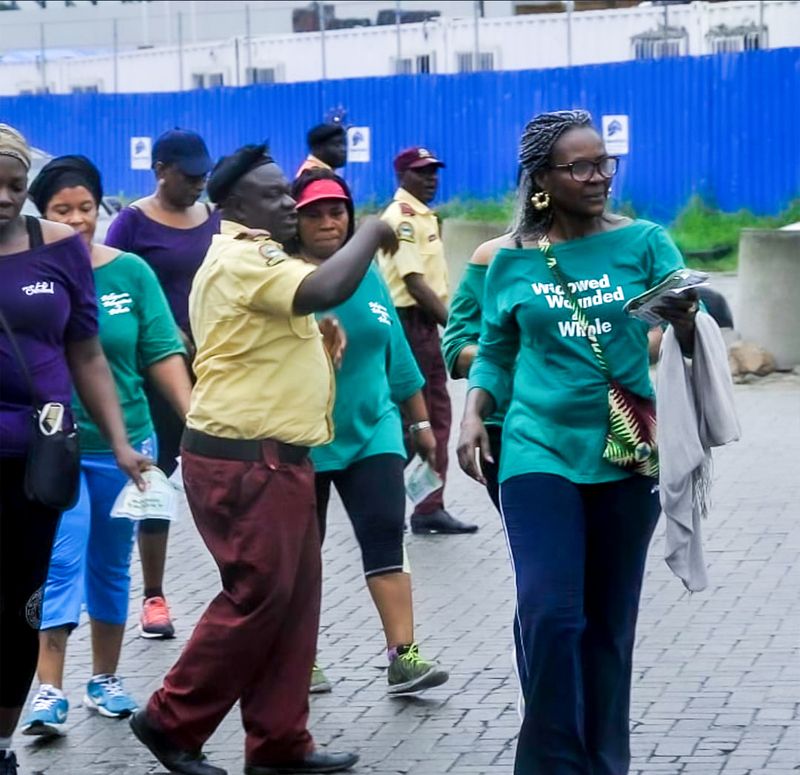
Nigerian radio host Hope Nwakwesi leading a charity walk for widows in Lagos. Photo Credit: Hope Nwakwesi
Nwakwesi has also remained a constant source of support in Dick’s life. She checks on her regularly and calls her frequently to make sure she is doing well. This support from Nwakwesi and the Facebook group, Dick said, has given her the strength to keep going. She is now running a small business.
Story Credit: Promise Eze for bird story agency

